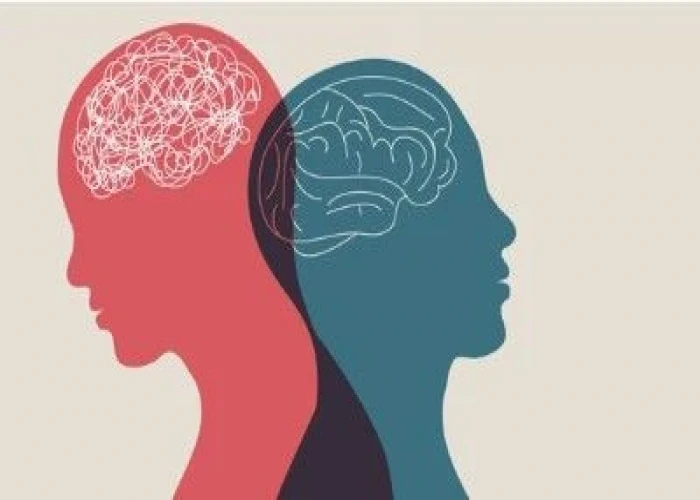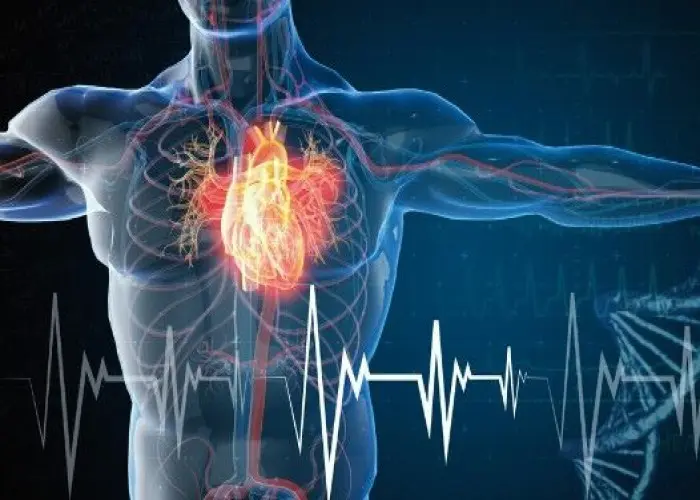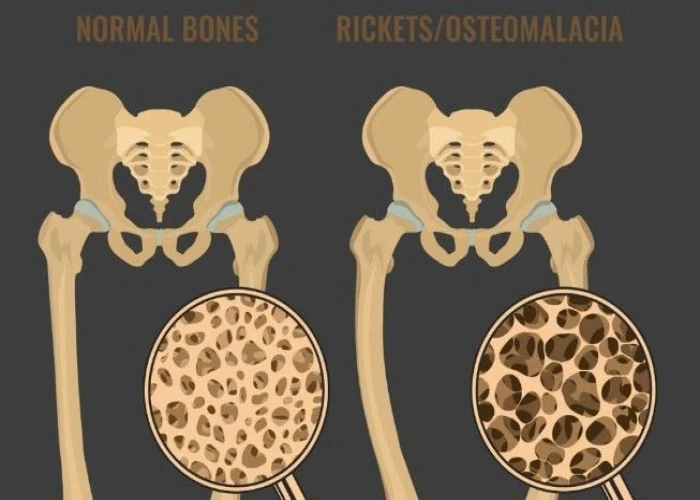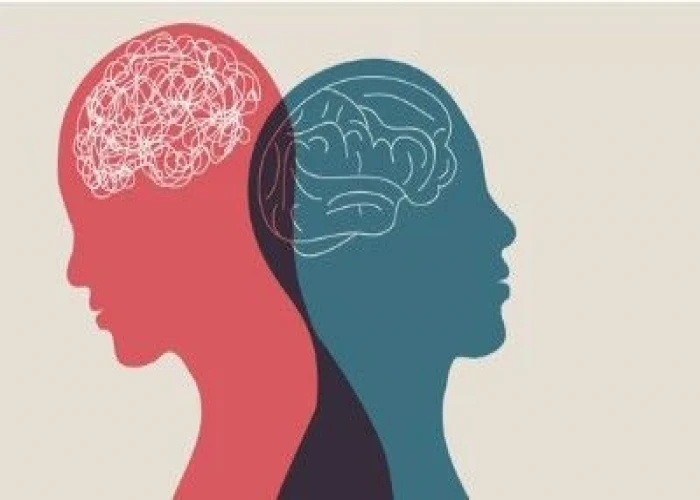 Welcome
Welcome
“May all be happy, may all be healed, may all be at peace and may no one ever suffer."
Personality disorders

Personality disorders are a group of mental health conditions characterized by pervasive and inflexible patterns of thinking, feeling, and behaving that deviate significantly from cultural and societal norms, and cause significant distress and impairment in social, occupational, or other areas of functioning. These patterns of behavior are long-standing and difficult to change, and typically emerge in adolescence or early adulthood.
There are several types of personality disorders, each with its own set of symptoms and characteristics. The most commonly recognized types of personality disorders include:
- Borderline personality disorder: characterized by intense and unstable emotions, self-image, and relationships, and a fear of abandonment.
- Narcissistic personality disorder: characterized by an inflated sense of self-importance, a need for admiration, and a lack of empathy for others.
- Antisocial personality disorder: characterized by a disregard for the rights and feelings of others, a tendency towards impulsive and irresponsible behavior, and a lack of remorse or guilt for harmful actions.
- Avoidant personality disorder: characterized by feelings of inadequacy and social inhibition, and a reluctance to engage in new activities or form close relationships.
- Obsessive-compulsive personality disorder: characterized by an excessive preoccupation with order, perfectionism, and control, at the expense of flexibility and spontaneity.
Diagnosis of personality disorders may involve a comprehensive psychiatric evaluation, a review of medical history, and the use of standardized assessment tools. Treatment for personality disorders may involve a combination of psychotherapy, medication, and lifestyle changes. Cognitive behavioral therapy (CBT) and dialectical behavior therapy (DBT) have been found to be effective in treating borderline personality disorder, while psychotherapy that focuses on building interpersonal relationships may be more effective for individuals with avoidant personality disorder.
The prognosis for personality disorders varies depending on the severity of symptoms and the individual's response to treatment. With appropriate treatment, many people with personality disorders can learn to manage their symptoms and improve their overall quality of life.
Research Papers
Disease Signs and Symptoms
- Tight, miserly control over budgeting and spending money
- Extreme shyness in social situations and personal relationships
- Socially inhibited, timid and isolated, avoiding new activities or meeting strangers
- Avoidance of work activities that require interpersonal contact
- Feeling inadequate, inferior or unattractive
- Too sensitive to criticism or rejection
- Avoidant personality disorder
- Envy of others or belief that others envy you
- Unreasonable expectations of favors and advantages, often taking advantage of others
- Exaggeration of achievements or talents
- Failure to recognize others' needs and feelings
- Fantasies about power, success and attractiveness
- The belief that you're special and more important than others
- Fear of disapproval, embarrassment or ridicule
- Personality disorder
- Excessive dependence on others and feeling the need to be taken care of
- Inflexible about morality, ethics or values
- Inability to discard broken or worthless objects
- Neglect of friends and enjoyable activities because of excessive commitment to work or a project
- Preoccupation with details, orderliness and rules
- Obsessive-compulsive personality disorder
- Urgent need to start a new relationship when a close one has ended
- Tolerance of poor or abusive treatment, even when other options are available
- Difficulty disagreeing with others, fearing disapproval
- Difficulty starting or doing projects on own due to lack of self-confidence
- Lack of self-confidence, requiring excessive advice and reassurance from others to make even small decisions
- Fear of having to provide self-care or fend for yourself if left alone
- Submissive or clingy behavior toward others
- Thinks relationships with others are closer than they really are
- Excessive concern with physical appearance
- Speaks dramatically with strong opinions, but few facts or details to back them up
- Peculiar dress, thinking, beliefs, speech or behavior
- Schizotypal personality disorder
- Inability to pick up normal social cues
- Inability to take pleasure in most activities
- Limited range of emotional expression
- Lack of interest in social or personal relationships, preferring to be alone
- Schizoid personality disorder
- Angry or hostile reaction to perceived slights or insults
- Perception of innocent remarks or non-threatening situations as personal insults or attacks
- Hesitancy to confide in others due to unreasonable fear that others will use the information against
- Unjustified suspicion of the loyalty or trustworthiness of others
- Unjustified belief that others are trying to harm or deceive you
- Odd perceptual experiences, such as hearing a voice whisper name
- Flat emotions or inappropriate emotional responses
- Social anxiety and a lack of or discomfort with close relationships
- Stress-related paranoia that comes and goes
- Intense fear of being alone or abandoned
- Suicidal behavior or threats of self-injury
- Unstable and intense relationships
- Lack of remorse for behavior
- Consistently irresponsible
- Aggressive, often violent behavior
- Repeated violation of the rights of others
- Disregard for others' needs or feelings
- Antisocial personality disorder
- Magical thinking believing can influence people and events with thoughts
- Indifferent, inappropriate or suspicious response to others
- Unusual behavior
Disease Causes
Personality disorders
Personality is the combination of thoughts, emotions and behaviors that makes you unique. It's the way you view, understand and relate to the outside world, as well as how you see yourself. Personality forms during childhood, shaped through an interaction of:
- Your genes. Certain personality traits may be passed on to you by your parents through inherited genes. These traits are sometimes called your temperament.
- Your environment. This involves the surroundings you grew up in, events that occurred, and relationships with family members and others.
Personality disorders are thought to be caused by a combination of these genetic and environmental influences. Your genes may make you vulnerable to developing a personality disorder, and a life situation may trigger the actual development.
Disease Prevents
Disease Treatments
The treatment that's best for you depends on your particular personality disorder, its severity and your life situation. Often, a team approach is needed to make sure all of your psychiatric, medical and social needs are met. Because personality disorders are long-standing, treatment may require months or years.
Your treatment team may include your primary doctor or other primary care provider as well as a:
- Psychiatrist
- Psychologist or other therapist
- Psychiatric nurse
- Pharmacist
- Social worker
If you have mild symptoms that are well-controlled, you may need treatment from only your primary doctor, a psychiatrist or other therapist. If possible, find a mental health professional with experience in treating personality disorders.
Psychotherapy, also called talk therapy, is the main way to treat personality disorders.
Psychotherapy
During psychotherapy with a mental health professional, you can learn about your condition and talk about your moods, feelings, thoughts and behaviors. You can learn to cope with stress and manage your disorder.
Psychotherapy may be provided in individual sessions, group therapy, or sessions that include family or even friends. There are several types of psychotherapy — your mental health professional can determine which one is best for you.
You may also receive social skills training. During this training you can use the insight and knowledge you gain to learn healthy ways to manage your symptoms and reduce behaviors that interfere with your functioning and relationships.
Family therapy provides support and education to families dealing with a family member who has a personality disorder.
Medications
There are no medications specifically approved by the Food and Drug Administration (FDA) to treat personality disorders. However, several types of psychiatric medications may help with various personality disorder symptoms.
- Antidepressants. Antidepressants may be useful if you have a depressed mood, anger, impulsivity, irritability or hopelessness, which may be associated with personality disorders.
- Mood stabilizers. As their name suggests, mood stabilizers can help even out mood swings or reduce irritability, impulsivity and aggression.
- Antipsychotic medications. Also called neuroleptics, these may be helpful if your symptoms include losing touch with reality (psychosis) or in some cases if you have anxiety or anger problems.
- Anti-anxiety medications. These may help if you have anxiety, agitation or insomnia. But in some cases, they can increase impulsive behavior, so they're avoided in certain types of personality disorders.
Hospital and residential treatment programs
In some cases, a personality disorder may be so severe that you need to be admitted to a hospital for psychiatric care. This is generally recommended only when you can't care for yourself properly or when you're in immediate danger of harming yourself or someone else.
After you become stable in the hospital, your doctor may recommend a day hospital program, residential program or outpatient treatment.
Disease Diagnoses
Disease Allopathic Generics
Disease Ayurvedic Generics
Disease Homeopathic Generics
Disease yoga
Personality disorders and Learn More about Diseases

Hair loss

Heart failure

Heatstroke

Gallstones

Whipple's disease

Mesothelioma

Lobular carcinoma in situ (LCIS)

Osteomalacia
personality disorders, ব্যক্তিত্বের ব্যাধি
To be happy, beautiful, healthy, wealthy, hale and long-lived stay with DM3S.
